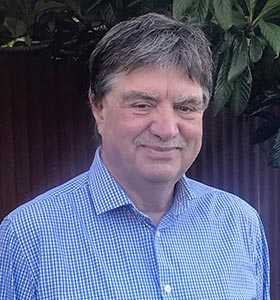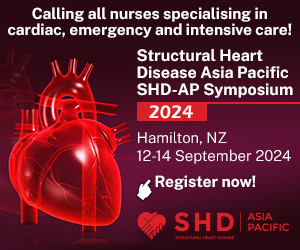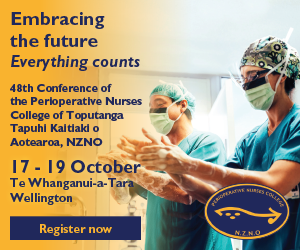
In 1995, their second daughter, Caitlin, was born at 36 weeks. Weighing just 1600g, she died following open heart surgery in Auckland.
A couple of years later in 1997, they were in again with baby Max, born at 38 weeks, who had difficulty feeding. They eventually figured it out and their son is now a healthy young man in his early 20s. “So that gave me a bit of an insight,” said Hutchinson, now Christchurch Women’s Hospital (CWH) associate clinical nurse manager. “You understand why parents might get upset about certain things, what they’re going through, in a way that perhaps other staff might not.”
Being a bloke has rarely been a problem in his 30 years or so in the neonatal service. These days his role is a coordinating one, but in the past caring intimately for mothers, with breast-feeding support, “never felt strange”, he said. “Nobody’s given me a hard time and if they do, it’s usually the fathers.”
However, he’s always been conscious of possible tension, bringing female colleagues in if he senses any. He practised a no-touch technique for mums having trouble getting their baby feeding, just talking them through it. “That worked for most of the time and if I had any difficulty, I would change tasks with another RN [registered nurse].”
Hutchinson was part of the group which established the hospital’s pasteurised human milk bank in 2014 – the first in the country. He is now working through the neonatal service to attain accreditation of CWH as a baby-friendly hospital. That means no “active promotion” of baby formula, bottles and pacifiers (except for neuro-development reasons) – although, of course, for those who cannot breastfeed or choose not to, formula is provided, he said. “I have the belief that you support feeding choice and I support breastfeeding where the mother’s choice is breastfeeding.”
‘You just have to focus on what small thing you can do in your role in that person’s life.’
Before the establishment of the baby-friendly hospital initiative in New Zealand in 1999, it was common for sales reps to hand out free formula samples, pens and diaries to new parents in hospitals. “For vulnerable babies, particularly, or any baby, it’s not necessarily the best thing for them. Of course there are mothers who can’t feed for some reason or formula is their choice, and that’s when we need to make sure it’s done safely.”
Hutchinson initially was looking for an escape from his home town of Hokitika and a career in banking when he opted for what was then called psychopaedic nursing in the ’70s – caring for people with intellectual disabilities in institutions. “I just wanted to move away from the [West] Coast.” After a few years working as a registered psychopaedic nurse at Christchurch’s Templeton Hospital, he moved to Melbourne to pursue paediatric nursing before heading to the United Kingdom. When he and Gloria returned to New Zealand in 1990, he couldn’t find work in paediatrics, so picked up a role at Burwood Hospital working with young people with disabilities. From there, he took up a neonatal role at CWH. It was a “chaotic” time for the neonatal unit, which was overcrowded and had relocated due to building and electrical issues.
But there was a “good vibe” in the busy team, and the charge nurse, Dot O’Connor, was supportive. “It grew on me, as a much smaller and really tight team.”
Hutchinson has mostly stayed there ever since. Praised by outgoing Neonatal Nurses College Aotearoa chair Gina Beecroft for the “quiet” support he provides to staff and families, Hutchinson says he is “just doing his job” as a clinical coordinator. “We oversee and support. I don’t see how I do that any differently.
“Everyone thinks about the ventilators and hi-tech stuff involved with neonatal nursing, but supporting parents to care for their own baby is the important thing,” Hutchinson said. “Of course, the life-saving part is a priority but, at the end of the day, you want people to go home and enjoy their baby.”
Dealing with the daily struggles of families with neonatal babies can be overwhelming, but nurses can only do so much, he said.
“As nurses we want to fix things, but you can actually help a lot by listening, supporting or giving people your time,” he said. “The best way to protect yourself is not to over-commit and promise things you can’t deliver. You just have to focus on what small thing you can do in your role in that person’s life.”



